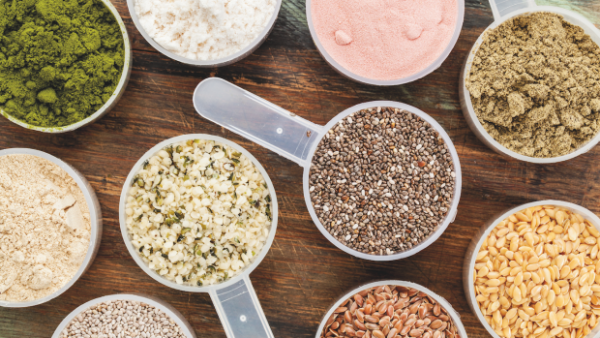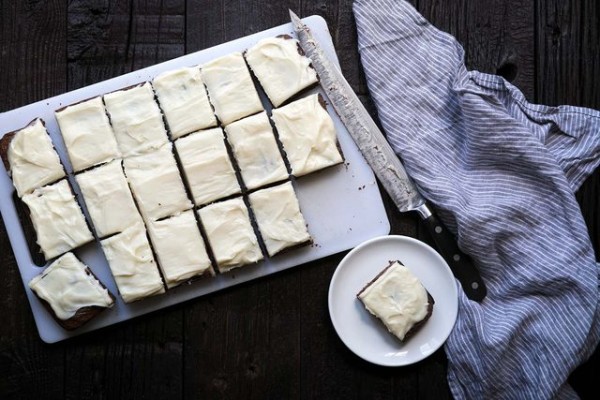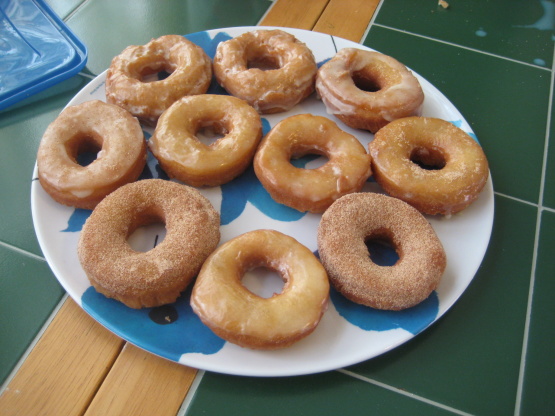Get lean and clean with these new healthy protein powders!
The protein supplements market is going through something of a transformation. Again. First, the big macho pots of protein powder aimed at male bodybuilders were joined on the shelves by female-friendly equivalents, aimed at helping us get leaner and more defined.
Now, the brands behind the supplements are realising that people who care about their bodies don’t just want to down this stuff without caring what’s in it. We want our bodies to be healthy as well as to look good. So now, many protein powders and products are becoming more plant-based, less additive-laden and often organic. That makes sense to us.
‘People are increasingly looking for more raw and minimally processed proteins that are as close to their natural state as possible,’ says Darlene McCormick, co-founder of That Protein (thatprotein.com). ‘They’re also interested in protein-based products that bring additional health benefits over and above muscle building.’
Back in 2010, tests by the US Consumer Reports organisation uncovered potentially harmful amounts of arsenic, cadmium, lead and mercury in three-out-of-15 protein drinks tested. Many old-style protein powders are also laced with flavourings, emulsifiers and sweeteners. Things had to change, and protein products have been gradually cleaning up their act since then.
The latest breed of protein supplements are a world apart from those old-style tubs. Less processed? Tick. Sugar- and additive- free? Tick. What’s more, many plant protein powders, such as rice and pea, are useful for those with intolerances to dairy (whey) or soya products. Some even contain superfoods, such as açai, or added vitamins and minerals, boosting the nutritional benefit. Here are some of the best ‘clean’ protein powders and supplements.
Here’s some that we love.
INNERMOST THE HEALTH ONE A combination of brown rice and pea protein powders give you a full complement of amino acids for building muscle. With 31g protein per serving, it also contains bilberries, shiitake and açai, with immune-enhancing and antioxidant benefits, and rainforest shrub camu camu – a natural source of vitamin C. Get yours at liveinnermost.com.
PURITION RAW VEGAN HEMP WHOLEFOOD PROTEIN SHAKEThese all-natural shake powders come in vegan (hemp) and non-vegan (whey) versions and contain 16.9g protein per 50g serving. They contain lots of nuts and seeds, so are a complete wholefood, useful for breakfast or lunch with your favourite milk or coconut water. Get yours at purition.co.uk.
PHD NUTRITION PROTEIN SUPERFOOD SQUEEZY This ready-prepared smoothie pouch contains pea protein, coconut water, and mango and banana purees, delivering 20g protein without any artificial ingredients (stevia is used to sweeten it). It’s a good post-gym option for when you’re on the go. Get yours at phd-supplements.com.
THE GOOD GURU HEALTHY WHEY Made from ethically-sourced, grass-fed cow’s milk, this ‘cleaner’ whey powder is boosted with beta glucans – the ingredient in oats that lowers cholesterol and helps manage blood sugar levels – and added vitamins and minerals. It contains 23.85g protein per serving. Get yours at thegoodguru.com.
NEAT NUTRITION VEGAN PROTEIN This is a simple mixture of pea and hemp protein, along with xanthan gum (a natural thickener) and thaumatin (a natural sweetener from the katemfe fruit, native to Sudan). This vegan protein contains 26.5g protein per 35g serving and is gluten and lactose free. Get yours at neat-nutrition.com.
THAT PROTEIN I HEART PUMPKIN AND CHIA SEED SUPER PROTEIN This organic mix will pimp your morning porridge or yoghurt, or you can use it to make a shake. Although it’s 44 per cent protein, that equates to just 11 per cent per serving, but it’s very much a wholefood blend with lots of omega-3 and fibre, too. Get yours at thatprotein.com.
MYPROTEIN ORGANIC HEMP PROTEIN POWDER MyProtein has a vast range of protein powders – this one is made from 100 per cent organic ground organic hemp seeds, providing fibre, iron, magnesium and omega-3s. One 30g serving contains the equivalent protein (15g) of two eggs. Get yours at myprotein.com.
If you’re vegan, check out our pros and cons list of plant-based proteins so you can decide which is best for you.
HEMP Pros: The protein in hemp is high quality, having the full complement of amino acids for building muscle. Along with the protein (around 45-65 per cent), powdered hemp comes with twice the fibre of wholemeal bread and is a vegan source of omega-3, iron and magnesium. Cons: It can be a bit gritty in shakes and smoothies.
PEA Pros: Pea protein products usually provide high (80 per cent) protein. It works well in baking to up the protein in flapjacks or cereal bars. Cons: The protein quality isn’t as good as soya or whey (it doesn’t have optimal ratios of all the essential amino acids). If you’re using it to renew and repair muscle after workouts, mix it with a complementary protein, such as brown rice.
BROWN RICE Pros: A good choice for people with multiple allergies, most rice protein powders provide 80 per cent protein, and they mix fairly well into liquid. Cons: Brown rice is another one that’s not a perfect form of protein, so if you’re using it for muscle repair, combine it with pea protein. Dispassionate experts say that it’s not worth paying more for a fermented version of the product.
SUNFLOWER/ PUMPKIN SEED Pros: Both these powders have a high fibre content plus the essential fats required for healthy skin and hormone production. They have good levels of magnesium, too, for a healthy nervous system; and antioxidant vitamin E. Cons: They’re not a hugely concentrated protein (45-65 per cent) and you’ll need an additional source, such as beans for complete protein.







